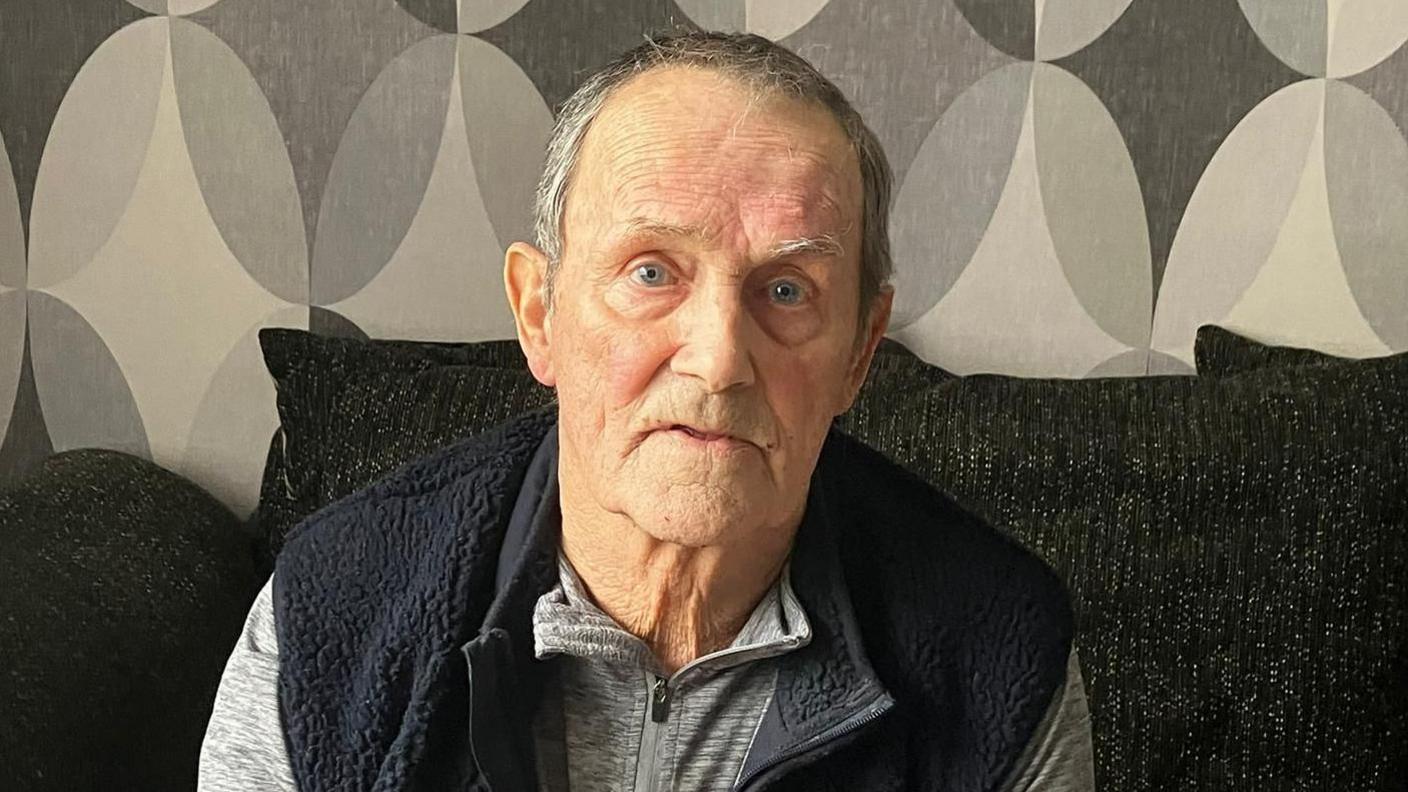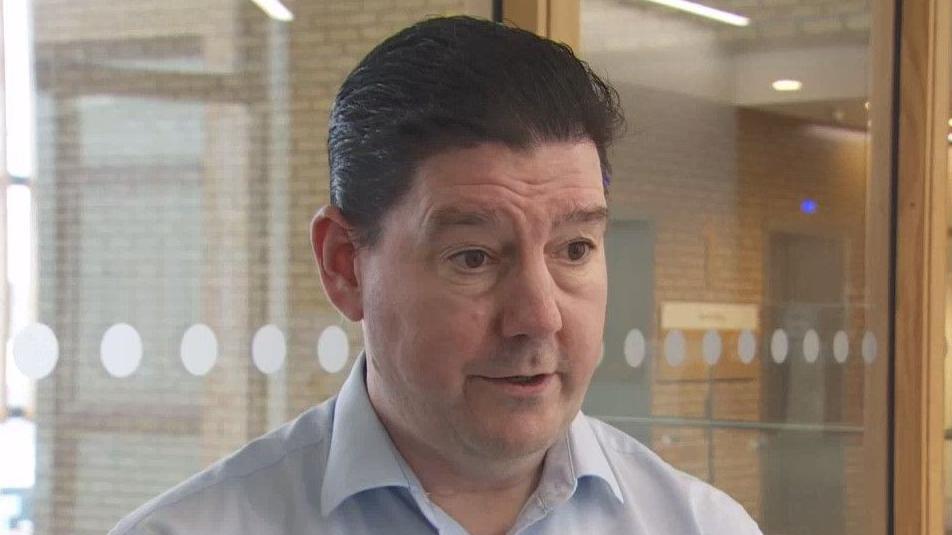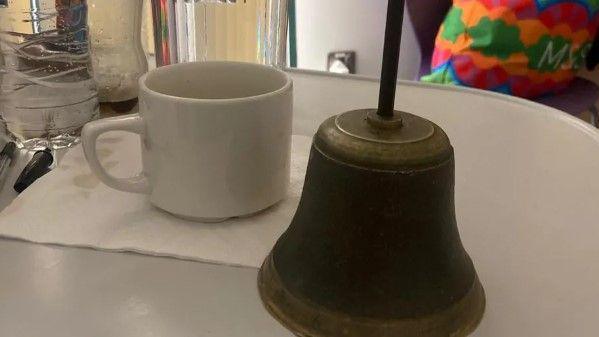Trust admits lack of dignity for some patients

Keith Moore spent six days in a hospital locker room at Altnagelvin Hospital
- Published
The Western Trust has accepted the experience of some patients at Altnagelvin Hospital was not dignified.
It comes after two patients told BBC News NI that they received treatment in a hospital staff locker room.
A 77-year-old man described the room as like being "in a dungeon", while a 23-year-old woman said it was "dehumanising".
Medical director of the Western Trust Dr Brendan Lavery apologised to the patients.
"We would like all of our patients to have a positive experience when they are admitted for any healthcare issue but unfortunately, that has not been the case," he told BBC News NI's Evening Extra programme.
Dr Lavery said the hospital was operating under enormous pressures after enacting a full capacity protocol in February of this year.
Previously, the Department of Health (DoH) said it was "concerned" by the experiences described by both patients and would be carrying out a review.

Dr Brendan Lavery says the hospital was operating under enormous pressure
Keith Moore went to Altnagelvin Hospital on 5 April after experiencing a build-up of fluid in his feet caused by a suspected infection.
He told BBC News NI his room lacked windows, a sink, a toilet and did not have a door.
"It was like a dungeon, it was worse than a dungeon," he said.
Zoe Carlin spent nine days in what is understood to be the same room in March.
Dr Lavery said both patients were treated in what was known as "an escalated bed space".
“In Altnagelvin we have 28 escalated bed spaces and in South West Acute [Hospital] we have 20, but I would like to restate that this is relatively typical of all of the hospitals in Northern Ireland and indeed across the UK," he said.
He said such rooms were areas which the hospital had "formally safety assessed" and found to be suitable for use by a patient and would "fully fulfil the requirements they have".
“To put that into layman’s terms, if you are critically ill patient or have high nursing needs, we would not be using an escalated bed space," he said.
“All patients are formally assessed by the medical and nursing staff before they are put in these additional areas.
"We effectively have two choices, keep patients in a busy emergency department or we can use an alternative area that we have assessed as being safe and individually assess patients before they go there."

Like Zoe Carlin, Keith Moore had to ring a bell to get attention from the nurses
Like Ms Carlin, Mr Moore had to ring a bell to get attention from the nurses on shift.
"They gave me a bell to ring when I needed someone," he said.
"There was no toilet in the room and because of the tablets I was on I had to use the toilet more often.
"If no one answered the bell, I had to take myself up the corridor to go to the toilet.
"Some days a nurse could come and take me in a wheelchair but other days, when the nurses were busy, I had to take myself."
Mr Moore said that because his feet were very swollen it was incredibly painful anytime he had to walk, even for short distances.
When asked about Mr Moore's experience about accessing a toilet, Dr Lavery said several patients on hospital wards would not have access to individual toilets, but accepted that while safe, there may be an issue surrounding patient dignity.
"I wouldn't disagree with you that it is not dignified, but I would say that that does not necessarily mean it is not safe," he said.
"What we are doing is the least worse solution with the resources that we have".
Zoe Carlin describes her time in the hospital locker room
In a statement earlier, the Department of Health said it was "acutely aware of the pressures" in emergency departments.
However, it said, "at all times, patients should be treated with dignity and care".
"We are concerned by the experiences described by patients and will be carrying out a review with the Western Health and Social Care Trust into the issues raised.”
Hospital bed-blocking figures 'unacceptable'
Meanwhile new DoH figures show that more than 600 patients were occupying hospital beds last month despite being declared medically fit for discharge.
Democratic Unionist Party (DUP) assembly member Diane Dodds described the figures as a “travesty”.
The figures, released to Mrs Dodds by health minister Robin Swann, show a total of 628 patients were in a hospital bed in Northern Ireland on 15 March, despite being ready for discharge.
Of the 628 patients, 150 were in the Belfast trust, while 149 were in the Southern Trust.
A further 148 were in beds in the Western trust area, while a total of 114 patients were in the Northern trust.
Sixty-seven beds in the South Eastern trust were occupied by people ready for discharge on 15 March, the figures reveal.